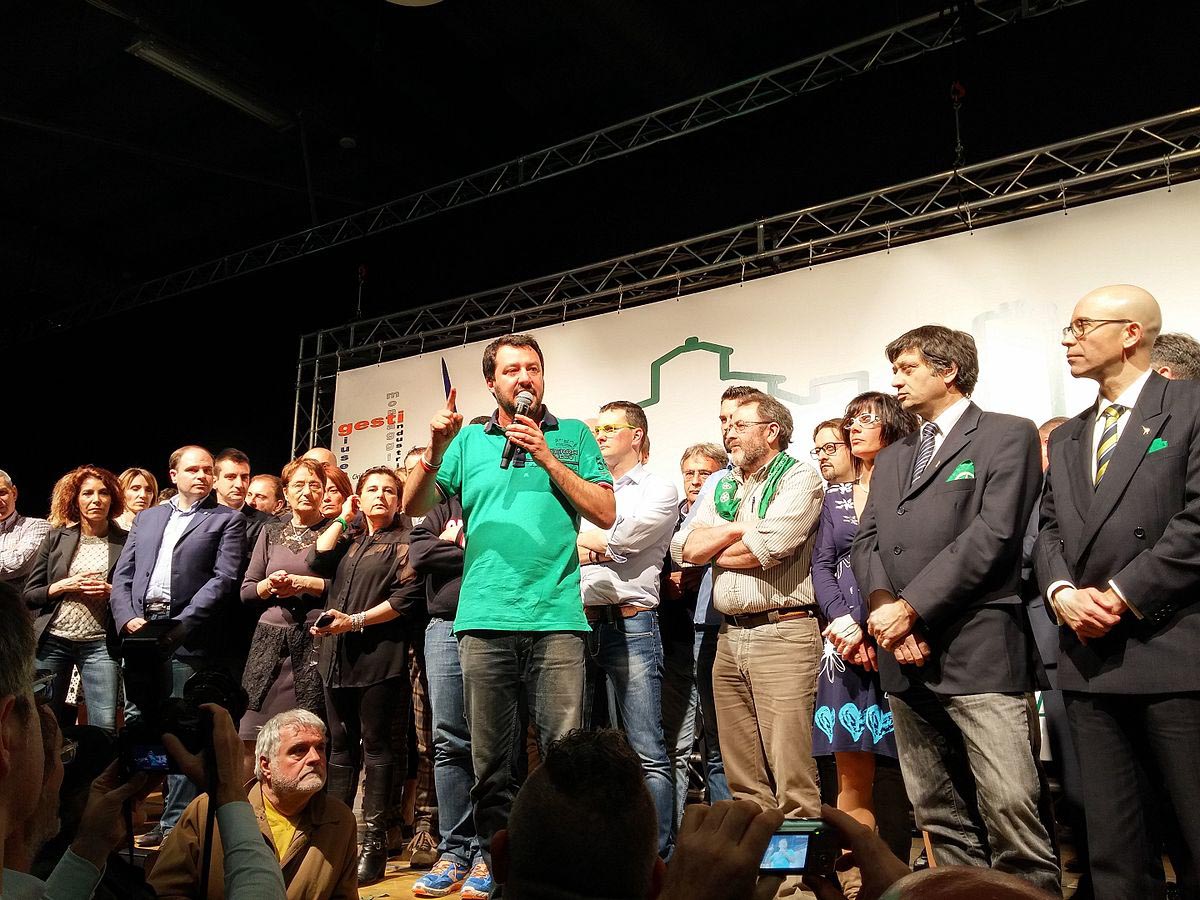
Italy’s far-right Deputy PM Matteo Salvini pictured here during a 30th-anniversary celebration of the Lega Nord Party in 2015 has lobbied for the closure of all Mosques (Photo: Fabio Visconti/Creative Commons)
Aqila Mumthaz
A Muslim group’s attempt to work around the rules that stop them from building a mosque chose instead to convert a former hospital chapel in Bergamo into a mosque. Only to be blocked by Italy’s far-right Lega Nord.
Italy’s Deputy Prime Minister and Lega Nord Leader, Matteo Salvini, campaigned to halt the construction of new mosques in Italy, in May this year. The party, which took power in Italy with Five Star party in June, previously passed laws to restrict new mosques in Lombardy which includes Bergamo, the region which has been under their govern since 2013.
The chapel, which was first given up by the Catholic Church, was used by Romanian Orthodox worshippers in 2015 before the region decided to auction it.
The officials insisted that the buyer use it for religious purposes but did not specify a religion. Unable to build a mosque because of the Lega Nord restrictions, the Muslim community placed a winning €418,000 bid.
Officials from the Lega Nord then scrambled to find a legal challenge to stop Muslims from using the chapel at the Riuniti hospital in Bergamo.
Lombardy President, Attilio Fontana, a Lega Nord politician, wrote on Twitter: “I would never put a Church on sale and I am amazed that the hospital management did not realise what a sensitive issue this is.”
Lega Nord leaders in the Lombardy region announced they would halt the sale by using a 2004 law that enables them to intervene and safeguard cultural sites.
Their decision means the Lombardy region must now buy the property.
Giorgio Gori, Mayor of Bergamo and from the centre-left Democratic Party, said, “The fact the region is selling a religious property to Muslims after fighting them for years makes you smile.”
Matteo Salvini said earlier this year that Italian culture and society was ‘threatened’ and risked being ‘eradicated’ by Islam.
“Centuries of history risk disappearing if Islamisation, which up until now has been underestimated, gains the upper hand,” he said.
Salvini’s comments came after Fontana had caused outrage by saying Italy’s “white race” could be wiped out and that “we are under attack. Our culture, society, traditions and way of life are at risk.”
There have been a number of attempts by a past government to close mosques. Many mosque constructions are blocked by an opposition of local residents. In September 2008 Lega Nord attempted and failed to introduce a new bill which would have blocked the construction of new mosques in much of the country, arguing that Muslims can pray anywhere, and do not need a mosque. The construction of mosques had already been blocked in Milan that year.
At least 2.6 million Muslims live in Italy, but there are only a handful of mosques officially registered with the government, with most worship rituals taking place in houses and small centres.
Unlike Judaism and Mormonism Islam is not recognised as an official religion in Italy, state recognition affords protection to places of worship, access to opening schools and observance of religious holidays.
Religions that are recognised by the Italian state also enjoy tax perks and other benefits, including greater freedom in how and where they worship.
Opinions about an alleged “Islamisation” of Italy may also be shaped by a misperception of numbers. According to a survey conducted by The Local.it, the Italian public overestimates the size of the country’s Muslim population by up to 500 per cent.
When they asked what proportion of the country’s population was Muslim, the average guess was 20 per cent or one in five.
In reality, Muslims make up just 3.7 per cent of the population in Italy and as independent research Institute Eurispes points out, out of Italy’s five million foreign residents just over 30 per cent are Muslim.
And according to the Pew Research Centre, Italy is second only to Hungary in negative perceptions of Muslims in Europe, with as many as 69 per cent saying they viewed Muslims unfavourably.
This often translates into right-wing opposition to projects aimed at Muslim communities by local groups.